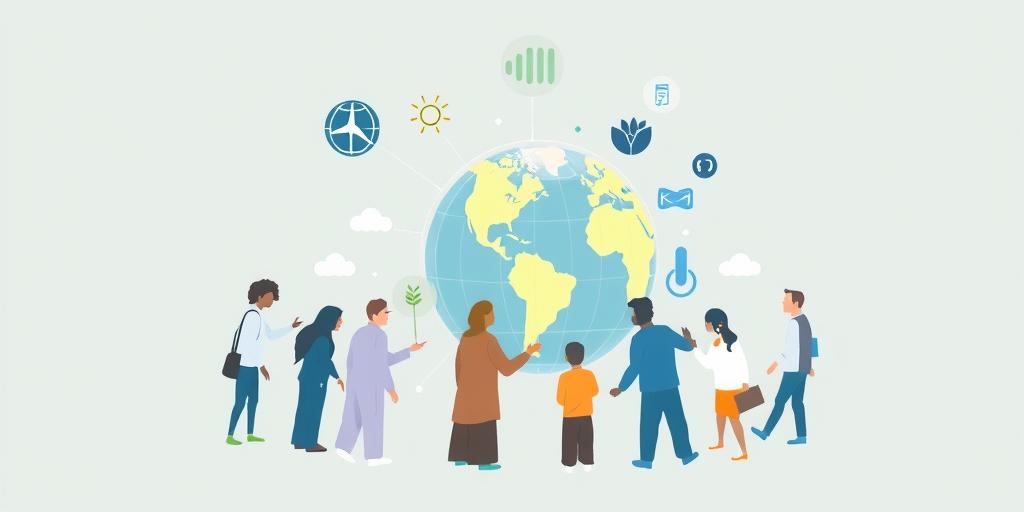How Technology Can Solve Global Problems
Technology, often seen as a driver of some of our modern problems, ironically holds immense potential for solving global challenges. From climate change to poverty and disease, innovative technologies are emerging as powerful tools for creating a more sustainable and equitable future.
Addressing Climate Change
Climate change is arguably the most pressing global issue. Technology offers several avenues for mitigation and adaptation:
- Renewable Energy: Solar, wind, and geothermal technologies are becoming increasingly efficient and affordable, offering viable alternatives to fossil fuels.
- Carbon Capture: Technologies that capture carbon dioxide from the atmosphere or industrial sources can help reduce greenhouse gas concentrations.
- Smart Grids: Advanced grid systems can optimize energy distribution, reduce waste, and integrate renewable energy sources more effectively.
- Precision Agriculture: Technologies like drones, sensors, and data analytics can help farmers optimize resource use, reduce emissions, and improve crop yields.
Combating Poverty and Inequality
Technology can also play a crucial role in alleviating poverty and reducing inequality:
- Mobile Banking: Mobile payment systems and digital banking platforms provide access to financial services for underserved populations.
- E-learning: Online education platforms and mobile learning apps can democratize access to education and skills training, empowering individuals to improve their livelihoods.
- Telemedicine: Remote healthcare technologies can extend medical services to remote and underserved areas, improving health outcomes and reducing healthcare disparities.
- Digital Identity: Providing individuals with secure digital identities can enable them to access essential services, participate in the formal economy, and exercise their rights.
Improving Global Health
From disease prevention to treatment, technology is revolutionizing healthcare:
- Vaccine Development: Advanced technologies like mRNA vaccines have demonstrated the potential to rapidly develop and deploy vaccines against emerging infectious diseases.
- Diagnostics: Rapid and accurate diagnostic tools can enable early detection and treatment of diseases, improving patient outcomes and preventing outbreaks.
- Wearable Devices: Wearable sensors and health trackers can monitor vital signs, detect early signs of illness, and promote healthy behaviors.
- Data Analytics: Analyzing large datasets can identify disease patterns, predict outbreaks, and optimize healthcare resource allocation.
Promoting Sustainable Development
Technology can contribute to sustainable development across various sectors:
- Smart Cities: Technologies that optimize resource use, reduce pollution, and improve quality of life in urban areas.
- Water Management: Technologies for water purification, desalination, and efficient irrigation can address water scarcity issues.
- Waste Management: Technologies for waste recycling, waste-to-energy conversion, and reducing plastic pollution.
- Sustainable Manufacturing: Technologies that minimize resource consumption, reduce waste generation, and promote circular economy models.
Challenges and Considerations
While technology offers immense potential for solving global problems, it's important to acknowledge the challenges and considerations:
- Digital Divide: Ensuring equitable access to technology and digital literacy for all populations.
- Ethical Concerns: Addressing ethical implications of AI, data privacy, and potential biases in algorithms.
- Environmental Impact: Minimizing the environmental footprint of technology production and disposal.
- Security Risks: Protecting against cyber threats and ensuring the security of critical infrastructure.
Conclusion
Technology is not a silver bullet, but it is a powerful tool that can be harnessed to address some of the world's most pressing challenges. By fostering innovation, collaboration, and responsible development, we can leverage technology to create a more sustainable, equitable, and prosperous future for all.









